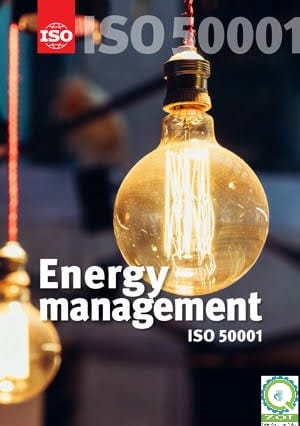ISO 50001:2018 Energy Management Systems
specifies requirements for establishing, implementing, maintaining and improving an energy management system (EnMS).
Used by large and small organizations across the world to manage and reduce energy use and costs, ISO 50001 is an excellent framework to help implement an energy management system (EnMS).
From large retailers to smaller manufacturers and small businesses, the standard offers organizations the opportunity to become more resilient against energy costs and availability.
Whether you’re interested in certifying to ISO 50001 to reduce costs, comply with legislation or increase your sustainability, implementing the standard provides a systematic approach to achieving all three.
 What are the benefits of ISO 50001 Energy Management?
What are the benefits of ISO 50001 Energy Management?
i) Identify and Manage the risks surrounding your future energy supply
ii) Measure and monitor energy use to identify where to improve efficiency
iii) Improve overall performance to cut energy consumption and bills
iv) Reduce carbon emissions and meet government reduction targets
v) Demonstrate environmental credentials to increase tender opportunities
This Certification:
a) is applicable to any organization regardless of its type, size, complexity, geographical location, organizational culture or the products and services it provides;
b) is applicable to activities affecting energy performance that are managed and controlled by the organization;
c) is applicable irrespective of the quantity, use, or types of energy consumed;
d) requires demonstration of continual energy performance improvement, but does not define levels of energy performance improvement to be achieved;
e) can be used independently, or be aligned or integrated with other management systems.